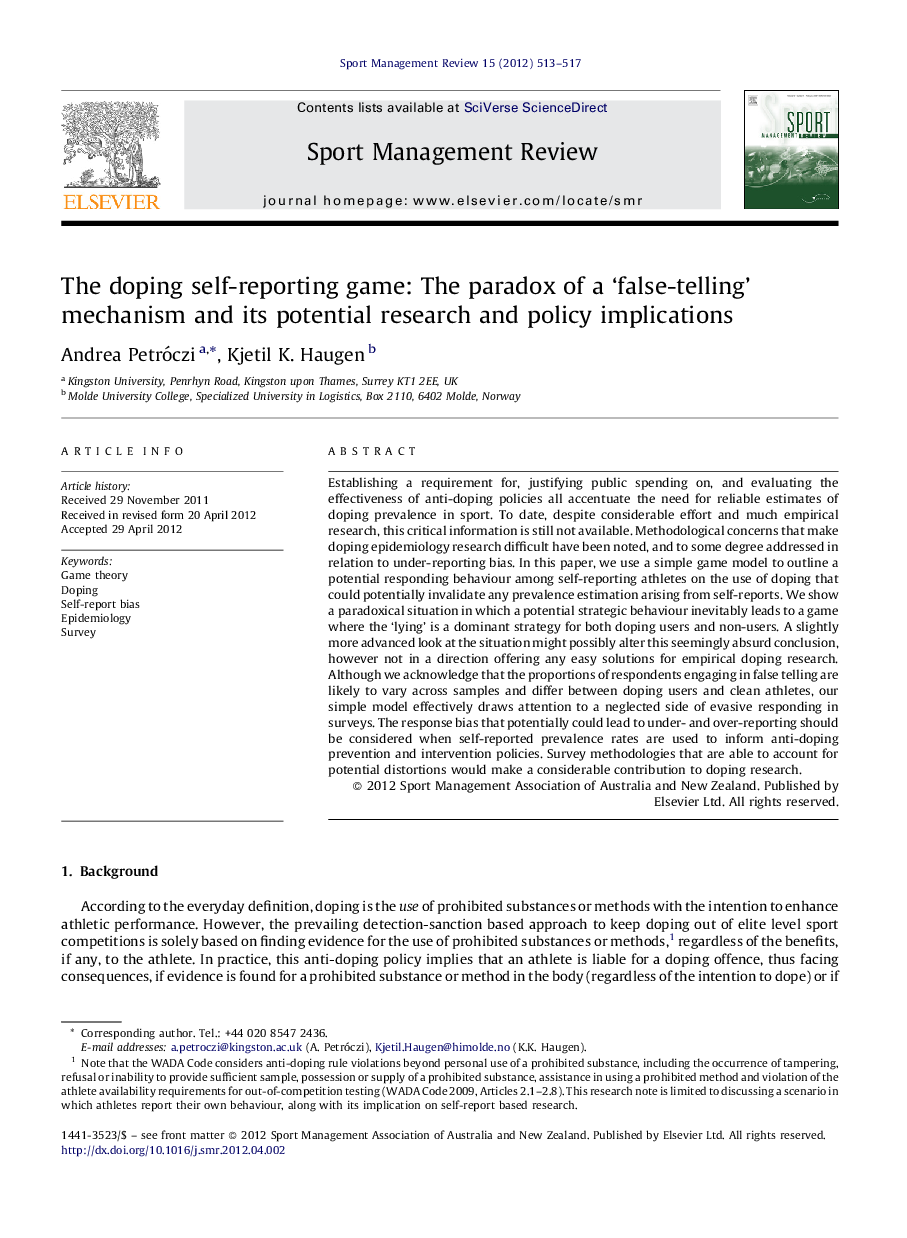| Article ID | Journal | Published Year | Pages | File Type |
|---|---|---|---|---|
| 141112 | Sport Management Review | 2012 | 5 Pages |
Establishing a requirement for, justifying public spending on, and evaluating the effectiveness of anti-doping policies all accentuate the need for reliable estimates of doping prevalence in sport. To date, despite considerable effort and much empirical research, this critical information is still not available. Methodological concerns that make doping epidemiology research difficult have been noted, and to some degree addressed in relation to under-reporting bias. In this paper, we use a simple game model to outline a potential responding behaviour among self-reporting athletes on the use of doping that could potentially invalidate any prevalence estimation arising from self-reports. We show a paradoxical situation in which a potential strategic behaviour inevitably leads to a game where the ‘lying’ is a dominant strategy for both doping users and non-users. A slightly more advanced look at the situation might possibly alter this seemingly absurd conclusion, however not in a direction offering any easy solutions for empirical doping research. Although we acknowledge that the proportions of respondents engaging in false telling are likely to vary across samples and differ between doping users and clean athletes, our simple model effectively draws attention to a neglected side of evasive responding in surveys. The response bias that potentially could lead to under- and over-reporting should be considered when self-reported prevalence rates are used to inform anti-doping prevention and intervention policies. Survey methodologies that are able to account for potential distortions would make a considerable contribution to doping research.
Graphical abstractFigure optionsDownload full-size imageDownload as PowerPoint slideHighlights► Game theory is applicable to self-reporting surveys. ► The best strategy for all agents (athletes) would be lying about doping use. ► Lying on surveys could result in false negative as well as false positive answers. ► These potential distortions should be considered in self-reported doping prevalence.
